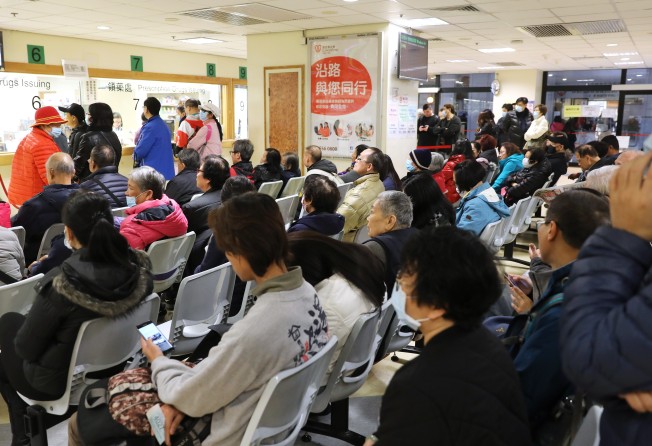Letters to the Editor, February 28, 2018

Painless visit to hospital belied fears
On the third day of the Lunar New Year, I developed acute waist pain and had to visit the Accident and Emergency department of Queen Mary Hospital. Given that it was peak winter flu season, I was expecting a long wait.
However, registration at the reception, assessment at the triage section, waiting in the hall area, consultation, X-ray, re-consultation and medicines at the pharmacy all took less than three hours. Despite the huge number of patients awaiting service and the shortage of nurses and other medical staff, everything was conducted in an orderly manner.
There was little confusion. The medical team was controlled and efficient.
I was fortunate to have waited for such a short time when fellow patients in public hospitals, especially on the Kowloon side, may often have to wait for up to 10 hours to see a doctor.
Jacqueline Kwan, Mid-Levels
Poor attitude unwarranted on the road
I refer to KMB taking part-time drivers off the road after the tragic bus crash in Tai Po last month (“KMB temporarily grounds 209 part-time drivers”, February 15).
Concerns over passenger safety arose after a double decker overturned on February 10, leaving 19 dead and nearly 70 injured.
As passengers later suggested that the bus, with a part-time driver at the wheel, may have been speeding downhill near Tai Po Mei village, many people blamed the accident on the lack of training and experience of part-timers.
But I believe this is also a problem of attitude, of both drivers and passengers. According to some interviews given to the media by others on the ill-fated bus, there were arguments between the driver and irate passengers before the fatal accident.
One said that some passengers, who had perhaps had a bad day at the Sha Tin racecourse, were impatient and in a bad mood because the bus was late, and that there was a lot of commotion even before it arrived. The Fanling Magistrates’ Court heard that the driver accelerated after being scolded by passengers for starting the run 10 minutes late.
I believe the issue here is that both sides failed to control their emotions, not so much whether part-time drivers lack experience and training. If passengers are angry over a delay in service, shouting at or scolding the driver can achieve little. They can make a phone call to the customer services office of the bus company, so that it can look into the matter.
Theodore Tam, Tseung Kwan O
Not fair to penalise all part-timers
I refer to your report on the brief industrial action by KMB drivers (“Bus strike leader fears retaliation from KMB bosses”, February 26). The article also said that a group of part-time drivers had called on KMB to reverse the decision to stop assigning shifts to them, claiming it was unfair to ban all part-timers because one of them was involved in a crash.
I support their stand. All colleagues should not have to suffer because of a mistake committed by one person. Part-timers could make an extra HK$3,000 or so, which they will now have to forgo.
Maybe KMB should give them a chance and trust them to be careful on the road, as an encouragement. Banning is no solution.
Judy Fung, Tiu Keng Leng
Worried about water taxi effect on Star Ferry
I refer to the proposed water taxi service on Victoria Harbour (“High demand for planned water taxis, survey finds”, February 26).
I definitely support the introduction of such on-demand boats, mainly for their effect on tourism.
Water taxis would offer point to point service, taking passengers directly to their destination, whether in West Kowloon, Tsim Sha Tsui or Hong Kong Island. Not only would this reduce travel time but also do away with the trouble of having to transfer at rail or bus stations. The convenience will appeal to both locals and visitors.
However, one point to consider would be the effect on existing cross-harbour ferry services. If the on-demand water taxi service is just like Uber, more people might then choose this instead of the Star Ferry, just as they choose Uber over taxis for better quality.
Demand for any future water taxi service is likely to be high; as the article reported, nearly 90 per cent of 508 respondents surveyed indicated they would like to use such on-demand boats.
If fewer people choose the Star Ferry, which runs fixed routes, the business may struggle. That would indeed be a pity, as the Star Ferry is as iconic as Hong Kong’s world famous harbour and a part of our shared history.
Jeffrey Li, Po Lam
E-textbooks have their drawbacks
There is no denying that e-books are increasingly popular, and many schools now depend on them for lessons.
Teaching though e-books gives convenient access to learning materials, and does away with heavy school bags. Teachers can follow up easily on students’ work, and even parents can track what their children have learned.
Moreover, e-books can allow teachers to cater for students individually, as some software allows them to see how far they have got and offer individual advice.
However, one disadvantage of depending solely on e-books in school is that they are not cheap, which means not every family can afford them easily.
Additionally, not all e-textbooks have multimedia elements or different levels of difficulty to cater for different students. So I would say e-books in school represent a double-edged sword.
Chan Ka Po, Kowloon Tong